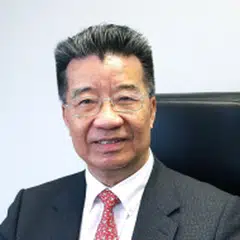Hong Kong commentator: My take on Li Ka-shing's contributions to Hong Kong
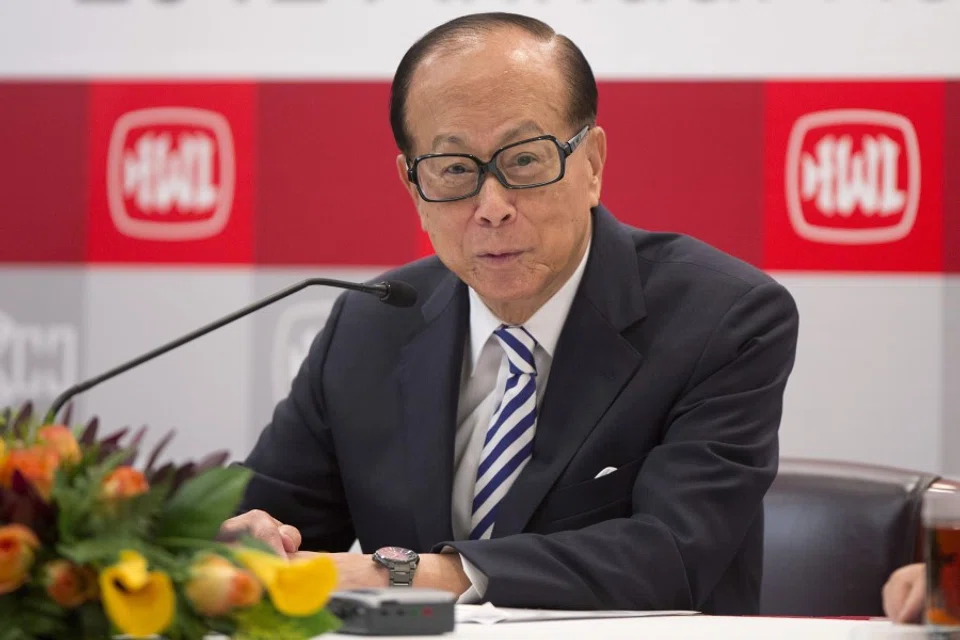
In the 1960s and 1970s, Hong Kong grew to become one of the Four Asian Tigers, while in the 1980s and 1990s, it developed into an international financial centre. The "one country, two systems" policy was later implemented after the city was returned to China in 1997, only for it to go awry over the past decade. Now, Hong Kong has lost its shine as a financial paragon. But throughout the city's modern history, one iconic figure cannot be overlooked: Li Ka-shing.
For a long time, Li naturally won adulation, praise and honour as a successful businessman and the richest person in Hong Kong and at one time Asia. At the same time, his prominence has attracted occasional attacks and smears. Li will soon turn 95, and he is probably more concerned with his place in history, rather than adding or losing a zero to his wealth. As former Chinese Premier Wen Jiabao said, citing Confucius: "In the end, history will vindicate or vilify me."
I came to Hong Kong from mainland China in 1973, literally swimming across the river with nothing to my name. It's been 50 years since, and I want to share my take on Li's place in history as an ordinary Hong Konger, based on what I have seen and heard.
Lin Zexu, a famous official from the late Qing dynasty, wrote: "Who is to assess my legacy?" My personal view of Li is as follows.
An entrepreneur across sectors and the globe
First, Li Ka-shing is a world-class pioneering, ambitious and innovative entrepreneur. He started in the plastics industry in the 1950s and became Hong Kong's first "king of plastic flowers" due to his keen business acumen. He then broke into Hong Kong's real estate sector with investments in factory buildings.
In 1972, Li's company became the first to get listed, flaunting the code 001. From being limited by the funds he had at hand, to having unlimited funds from public market financing, Li went on to demonstrate his pioneering spirit in acquiring British-funded Hutchison Whampoa as a flagship of diverse growth.
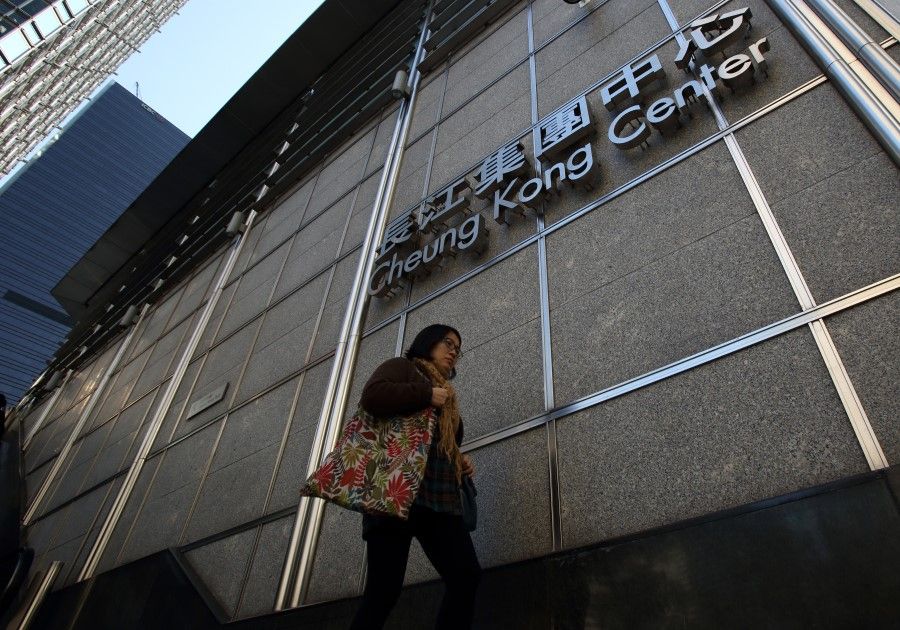
He later acquired Hongkong Electric Company, Canada's Husky Energy and British telecommunications company Orange and many others. The projects under Li's Cheung Kong Holdings and Hutchison Whampoa (collectively CK Hutchison) cover over 50 countries and regions across the globe in sectors such as real estate, infrastructure, energy, warehousing, telecommunications, big data, oil extraction, supermarkets, retail store chains, hotels, biotechnology, healthcare products, new energy and financial securities.
... a poster child of Hong Kongers' characteristics of hard work, adaptability, industry and fighting one's way to the top, and an icon of Hong Kong's post-war growth...
When I met Li 18 years ago, he emphasised that most of CK Hutchison's business profits came from overseas, not least the sale of Orange, which raked in a stunning HK$113 billion (US$14.6 billion).
Li started his business in the traditional manufacturing of plastic flowers and real estate, but he did not just stop there or stick to the old rules - he moved with the times and had a finger firmly on the pulse of the third industrial revolution. He continually sought new breakthroughs, and caught up to take the lead and set the trend in various sectors such as telecommunications, big data research, biotechnology and even new energy technologies including hydrogen energy.
Indeed, he is an embodiment of the entrepreneurial spirit of adventure, ambition and innovation, a poster child of Hong Kongers' characteristics of hard work, adaptability, industry and fighting one's way to the top, and an icon of Hong Kong's post-war growth as one of the Four Asian Tigers and an international financial centre.
A patriotic philanthropist
Second, Li is a prominent patriotic philanthropist who is helping to build a community with a shared future for mankind. He has a keen eye for business and a lot of foresight, successfully growing his capital blueprint. However, what he is after is not wealth, but the means and tools to do good for the community and contribute more to humankind. In the spirit of giving back to the community, Li has donated over HK$30 billion to education, healthcare, disaster relief and other philanthropic causes over the years.
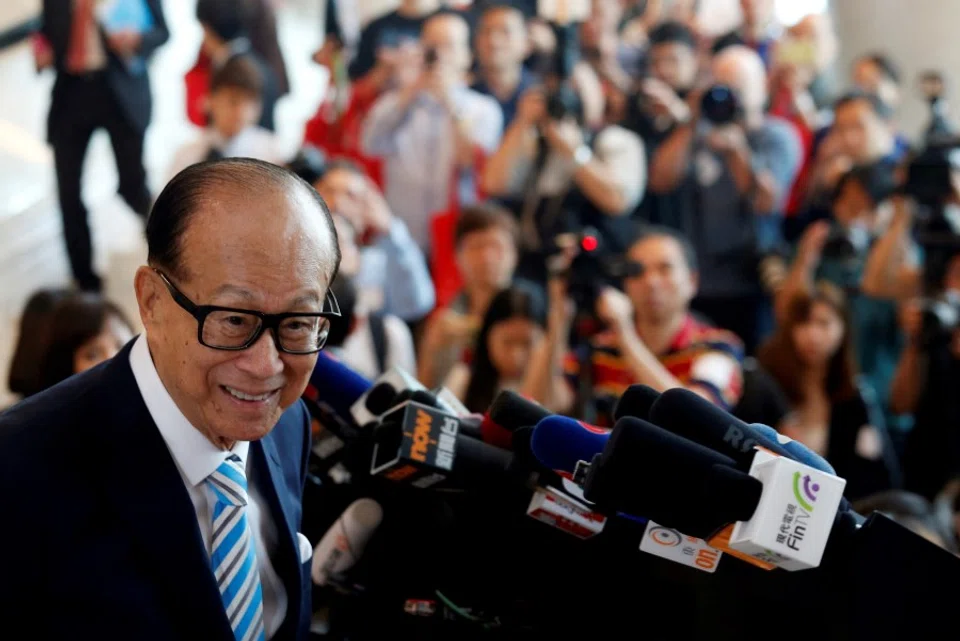
In the education sector alone, the scope of Li's donations is far-reaching, ranging from rebuilding 70 primary schools in the mountains of Chaozhou to fully funding the construction of Shantou University, Guangdong Technion-Israel Institute of Technology and Cheung Kong Graduate School of Business.
Li has also contributed to well-known institutions spanning four continents, including Tsinghua University, Peking University and Zhejiang University; University of Hong Kong and Chinese University of Hong Kong; Oxford and Cambridge in the UK; Yale, Stanford and University of California, Berkeley, in the US; University of Toronto and University of Ottawa in Canada; University of Sydney and University of Melbourne in Australia; University of Auckland in New Zealand; and Singapore Management University.
In addition, two visiting professors sponsored by the Li Ka Shing Foundation won the Nobel Prize in Medicine and Chemistry respectively in 2020, while in a generous gesture, Li also gave two ethnic Chinese professors on the Nobel Medicine team US$380,000 each as a special award to recognise these "unsung heroes".
Li's support of education is a contribution to human civilisation, science and technology, and social progress. Given that the medical field concerns health and life, Li has given financial support to many hospitals and medical institutions for specialised research in various medical fields. Advancements of modern medical technology also benefited from Li's passion and effort.
Chaozhou residents from Li's hometown in China have even expressed their heartfelt gratitude for his support of rural development with the couplet "翻身不忘共产党,幸福不忘李嘉诚": "We will never forget the Communist Party when we have a better life. We are grateful to Li Ka-shing for our happiness."
Li has always brought "timely rain" in disaster relief efforts. From the Eastern China flood to the Wenchuan earthquake, from the Lamma Island ferry disaster in Hong Kong to the earthquake and tsunami in Japan, from the SARS epidemic in 2003 to the Covid-19 pandemic in the past three years, from supporting the China Disabled Persons' Federation to helping small and medium-sized enterprises in Hong Kong, Li has always shown a willingness to share in the troubles around him.
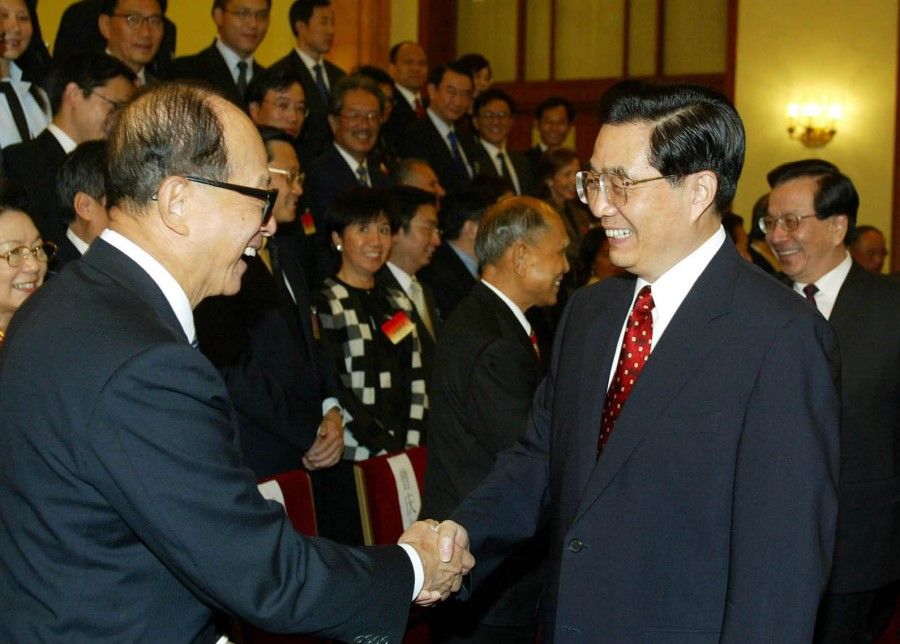
Indeed, he takes joy in helping others and is quick to do good, and would immediately open his wallet to give timely aid to those in need. Chaozhou residents from Li's hometown in China have even expressed their heartfelt gratitude for his support of rural development with the couplet "翻身不忘共产党,幸福不忘李嘉诚": "We will never forget the Communist Party when we have a better life. We are grateful to Li Ka-shing for our happiness." This shows that people can recognise the good done in this world.
A supporter of China's reform and opening up
Third, Li is one of the earliest supporters of China's reform and opening up. In 1979, the State Council approved the establishment of the China International Trust and Investment Corporation (now known as CITIC Group), with Rong Yiren serving as chair and general manager. This was China's first national-level company dealing with foreign investments and cooperation, and Li Ka-shing and fellow Hong Kong entrepreneur Huo Yingdong were appointed to the board of directors.
As the Chinese saying "delivering coal in the snow" goes, he made a great contribution at a time of need.
Li can be said to have had the foresight in supporting the mainland's reform and opening up. In January 1990, shortly after the Tiananmen Square protests and at a critical time when Western countries had imposed sanctions on China, international capital and financial groups in Hong Kong, Macau and Taiwan had been apprehensive about going to the mainland and adopted a wait-and-see attitude. With extraordinary courage and risking penalty on Cheung Kong Holdings from the West, Li visited the mainland and was received by Deng Xiaoping.
At a critical moment in history, he conveyed to Hong Kong and the world the important message that China's reform and opening up and Hong Kong's "one country, two systems" would not change.
Li's leadership helped direct capital from Hong Kong, Macau, Taiwan, the US, Europe and Japan to the mainland, and he was indispensable to China overcoming the hurdle of the Tiananmen Square protests. As the Chinese saying "delivering coal in the snow" goes, he made a great contribution at a time of need.
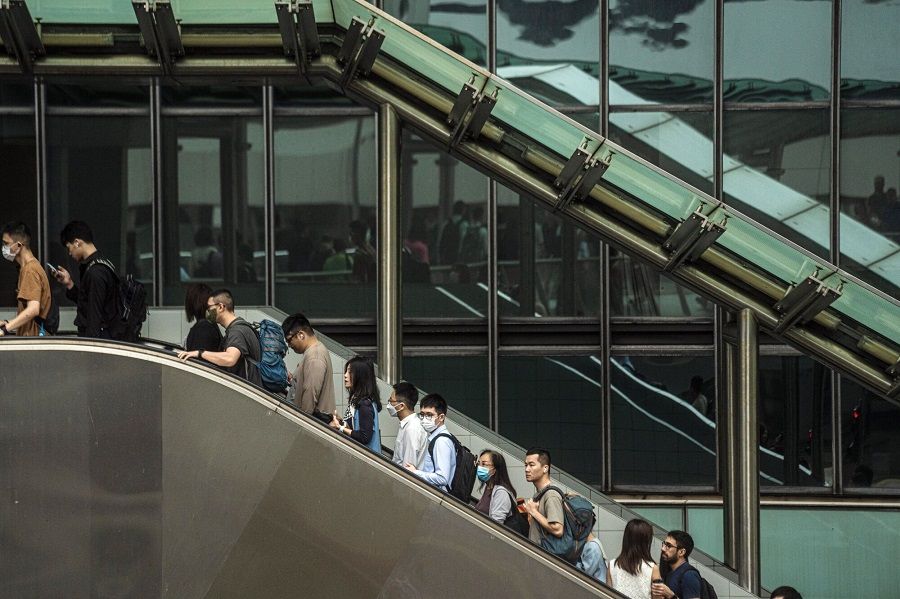
Since reform and opening up, Cheung Kong Holdings and Hutchison Whampoa Limited have invested in the mainland, complying with the law and national policies on the one hand, while abiding by the rules-based order of the market economy and being accountable to shareholders on the other. As a Chinese saying goes: "Man seeks his way up just as water seeks its way down." Funds enter and leave in accordance with the rules, and business is business.
Call for social harmony amid Hong Kong protest
Fourth, Li is not someone who only cares about making money and counting his wealth. He cares deeply for humanity and worries about the future of the country and its people.
In February 2019, the central government finally released the "Outline Development Plan for the Guangdong-Hong Kong-Macao Greater Bay Area" after years of preparation. Unfortunately, the Hong Kong government did not seize the rare opportunity, as they neither saw developing the economy and protecting people's livelihood as the top priority nor committed themselves to economic transformation. Instead, they "went astray" and busied themselves with amending the extradition bill, stirring up political tension and arousing great concern and discontent among Hong Kongers.
Even so, the Hong Kong government did not actively consider solving the problem through political consultation but instead relied on police brutality to suppress the protesters, which intensified social conflicts and led to the escalation of violent clashes between the police and the people, affecting the economy, people's livelihood and social security.
Having a deep affection for Hong Kong, Li was deeply troubled by what was happening in the city at the time. Speaking to journalists at Tsz Shan Monastery, Li urged the young people to "consider the big picture" and the government to "have mercy on the masters of our future", to end the protests.
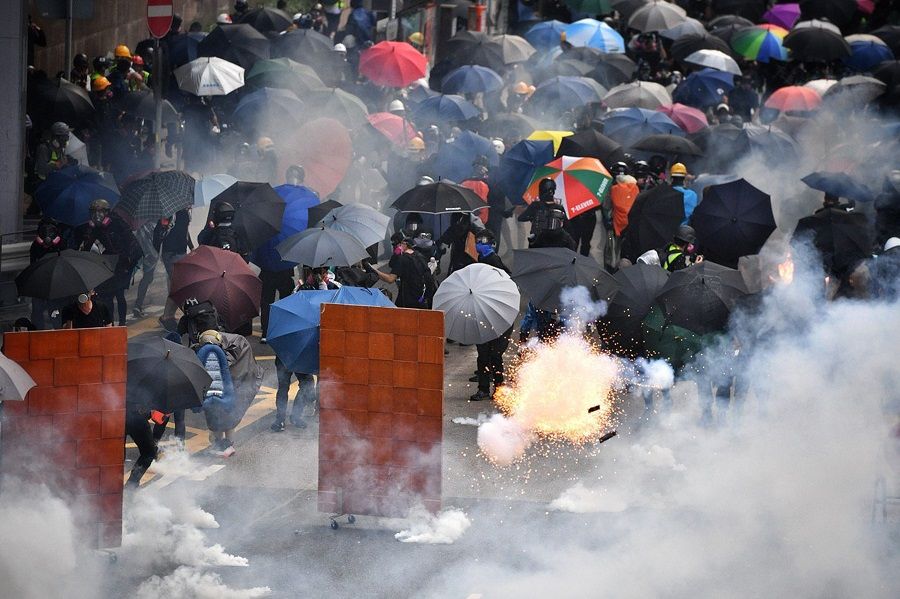
His main message was to call for social harmony, hoping that Hong Kong will move from chaos to governance and from governance to prosperity. At the same time, Li also placed a full-page advertisement that read "The melon of Huangtai cannot bear the picking again" in several newspapers and signed off as "an ordinary Hong Kong resident", reflecting his deep concern for Hong Kong and his hope that nothing will further hurt the city, in an attempt to save the "Pearl of the Orient".
Frankly, given the amount of assets that he has in countries such as the UK and Canada, Li can most definitely enjoy the rest of his life in Europe or the US, and turn a blind eye to Hong Kong altogether. But he remains in Hong Kong because of his love for the country and for Hong Kong - he encourages and advocates for the people, demonstrating that he has the conscience to "make appeals for the people" (为民请命) and the mission to "make suggestions to the country" (为国建言), both valuable qualities to have.
In 2015, mainland China suddenly published seven articles in 15 days criticising Li, with the most representative piece being "Don't Let Li Ka-shing Run Away" (《别让李嘉诚跑了》).
Not without controversies
Just as Tang dynasty essayist Han Yu once said, "Slander often comes to those who are successful and reputable." Li's reputation has embroiled him in several controversies throughout the years.
For example, in 2005, he donated HK$1 billion to the University of Hong Kong's Faculty of Medicine, which was renamed the Li Ka Shing Faculty of Medicine in accordance with international practice. But opposition politicians lambasted Li's donation as fishing for fame. Yet, Li had also donated billions of dollars to establish a university in his hometown, but it was simply named "Shantou University" - so how could he be criticised as fishing for fame?
In 2015, mainland China suddenly published seven articles in 15 days criticising Li, with the most representative piece being "Don't Let Li Ka-shing Run Away" (《别让李嘉诚跑了》). Angered by such injustice, I resolutely placed a full-page advertisement in Hong Kong newspapers titled "The Public Opinion Attack on Li Ka-shing Must Be Stopped Immediately", denouncing such actions as being at odds with the historical trend of reform and opening up and destroying the country's efforts at attracting investors. Only then did the criticisms against Li stop.
In 2019, Beijing's "Sword of Chang'an" (长安剑) official WeChat account criticised Li's call for officials to "have mercy" on the young people during his speech at Tsz Shan Monastery, saying that it "condones crime". Yet, it was the late Communist leader Mao Zedong who noted that extreme policies rarely worked out well in history and advocated "providing a way out". Thereafter, the Chinese Communist Party pardoned "war criminals" such as Commander Du Yuming and Xuantong Emperor Puyi in a move that did not condone crime and was seen as a master stroke of the United Front in turning negative factors into positive ones.
When I talk about Li, I often ask myself: ten birds on a tree, how many are left after you shoot one?
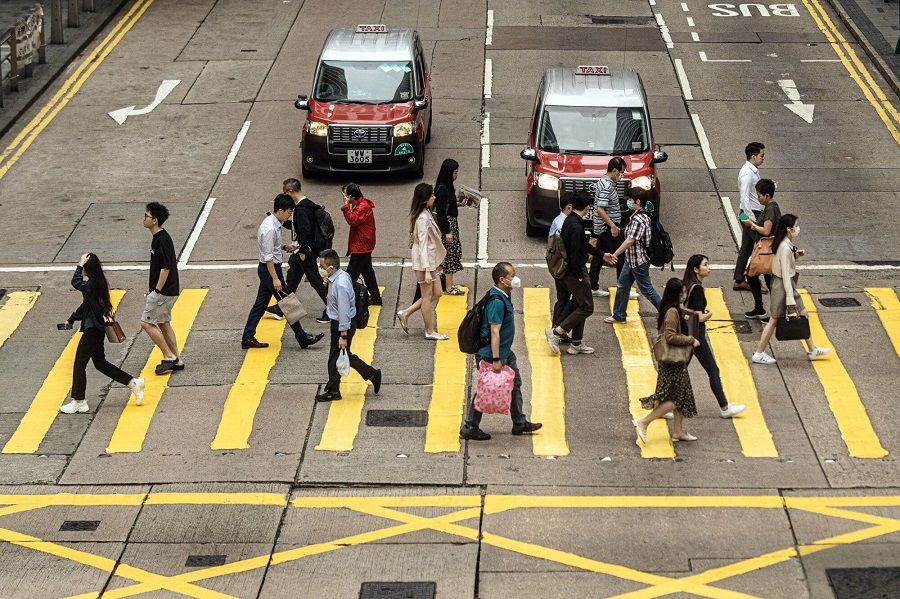
Along the same vein, it would seem futile to distort or discredit Li's good intentions. Yet, the "Sword of Chang'an" blamed Hong Kong's high property and rental prices on Li. In fact, Hong Kong has a simple and low tax system and offers free healthcare, free education, social security allowance and old age living allowance. It also offers subsidised home ownership schemes, and builds public houses, underground train networks, expressways, high-speed rails, a third airport runway...
Where does all that money come from? The government can only rely on land sales as an important source of revenue, awarding land to the highest bidder through its open bidding policy. At the same time, land is "flour" while property is "bread" - rising land prices inevitably lead to rising property and rental prices. How is Li to be blamed for this?
Hence, discussions about Li's historical positioning not only involve a personal evaluation of Li but also concerns modern Hong Kong history, the history of China's reform and opening up, and whether Hong Kong's "one country, two systems" model of governance could go awry. The erroneous thinking of "leaning too far left and disregarding the majority" (一左二窄) has to be corrected before a fair, objective and scientific assessment of Li can be made.
When I talk about Li, I often ask myself: ten birds on a tree, how many are left after you shoot one?
This article was first published in Lianhe Zaobao as "谈谈李嘉诚的历史定位".
Related: Is Hong Kong still a shopping paradise for mainland Chinese shoppers after the pandemic? | Will an investment summit revive Hong Kong's status as a financial hub? | Hong Kong's property prices are falling. Will it continue? | Can Hong Kong get rid of its atrocious subdivided flats anytime soon?
